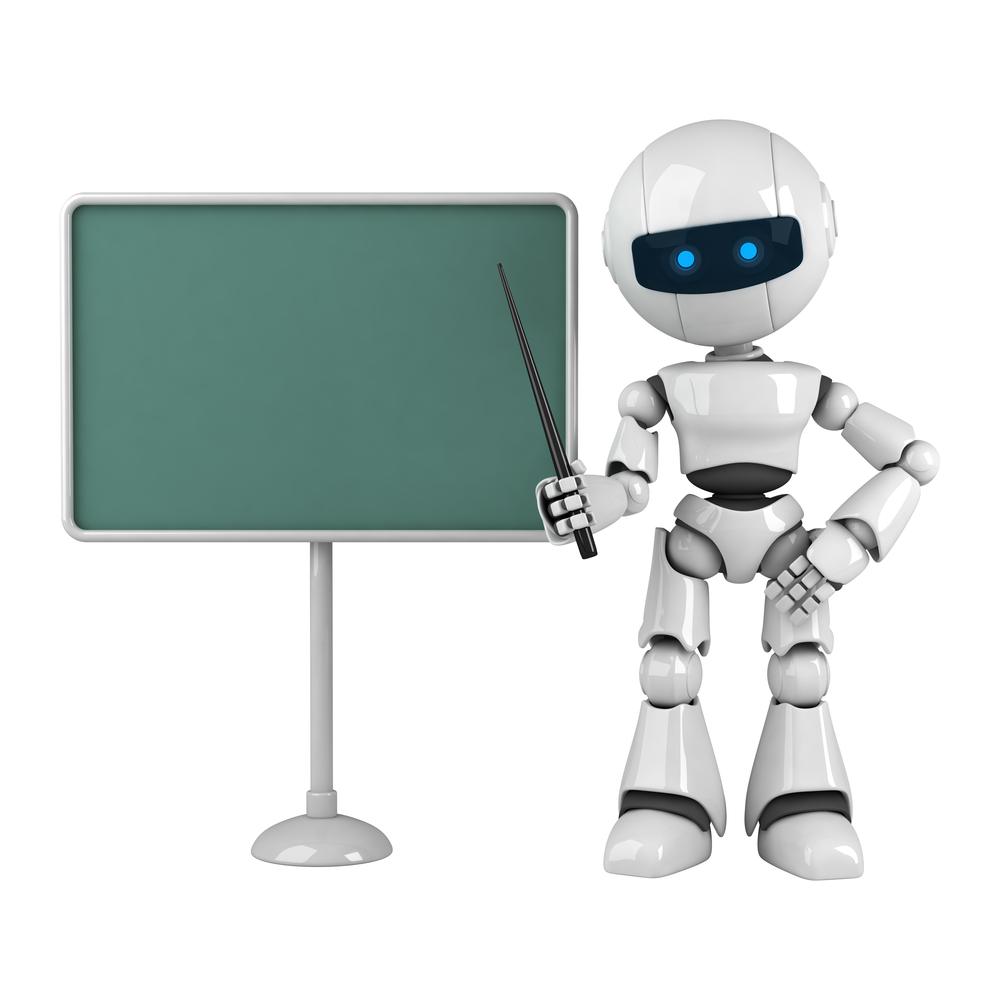Our technician Richard Weatherall attended a talk on Artificial Intelligence in Education (UCL Knowledge Lab/Pearson) on 24th March
The term artificial intelligence (AI) causes a wide range of different associations for people, usually depending on the level of experience or exposure an individual has to such systems. Many still hold the opinion that AI will herald the end of humanity, believing that its advent will make humans redundant, obsolete, or it will even become advanced to a state where it may decide it has no need for humans and begin to act accordingly.
Fear-mongering aside, AI is already becoming embedded in our society, with companies such as Apple, Google and Microsoft all deploying their AI personal assistants (Siri, Now and Cortana) as standard with their products. Historically, there has always been resistance to a paradigm shift such as this, and while it is true some human jobs may be replaced with a mechanoid or synthetic counterpart, the opportunities created are often so vast and diverse even the most prophetic cannot envision the direction of the future unraveling before them.
The International Artificial Intelligence in Education society is concerned with the research and development of the implementation of Artificial Intelligence for learning; and believes well-designed AI, in collaboration with teachers, parents and learners is paramount in maximizing the future benefits AI can offer, which are vast. A recent talk hosted by the UCL Knowledge lab, London, in collaboration with Pearson, highlighted current research in the area, as well as a demonstration of AI currently being deployed to assist learning.
The talk began with a presentation of a review of various meta-analyses looking at use of a number of AI systems/programs in a classroom environment. Results varied slightly between studies, but overall gave a positive view of AI integration. Notably, intelligent teaching systems performed as well as real teachers in one to one (non-expert) tuition. One common theme however, was that despite the varied and positive ways AI systems have been implemented, it was found that there is no AI substitute for classroom experience, with AI systems greatly aiding the teacher, but not being able (or intended) to replace them.
The need for properly developed teaching aids is more important than ever with the government’s plan to academize schools, possibly resulting in a lack of regulated experienced teachers and a focus on the financial bottom line. The bottom line for most teachers, however, is that teachers love to teach; and technology must enhance, enable and empower teachers to this end, which is the goal of AI in Education.
Whatever your opinion of AI, it’s widespread development and use only appears to be increasing. AI therapy programs, for example, are already being deployed to aid mental health in remote areas and populations isolated by war. As computational models of human emotion become more sophisticated and machine learning ever better at detecting the mental state of it user, the need for proper theoretical and experimental data driven designs are paramount. As one guest involved in computing and psychology at the AI.ED talk noted, computer programmers are not inherently psychologists, and psychologists not trained as programmers – a knowledge gap which must be closed in order that AI be safely and productively deployed with maximum benefit for the good of human kind.
Intelligence unleashed: An argument for AI in Education is a publication produced by ULC Knowledge lab and Pearson to inform and educate about the current state of AI.
Some examples of current AI systems being researched and implemented in classrooms, and presented at AI.ED, include Betty’s Brain, italk2learn, Zondle, The Tardis Project and (Whizz education)[http://whizz.com].
 psychology
psychology Marcus Roberts
Marcus Roberts 4278
4278



I couldn’t resist commenting. Very well written!